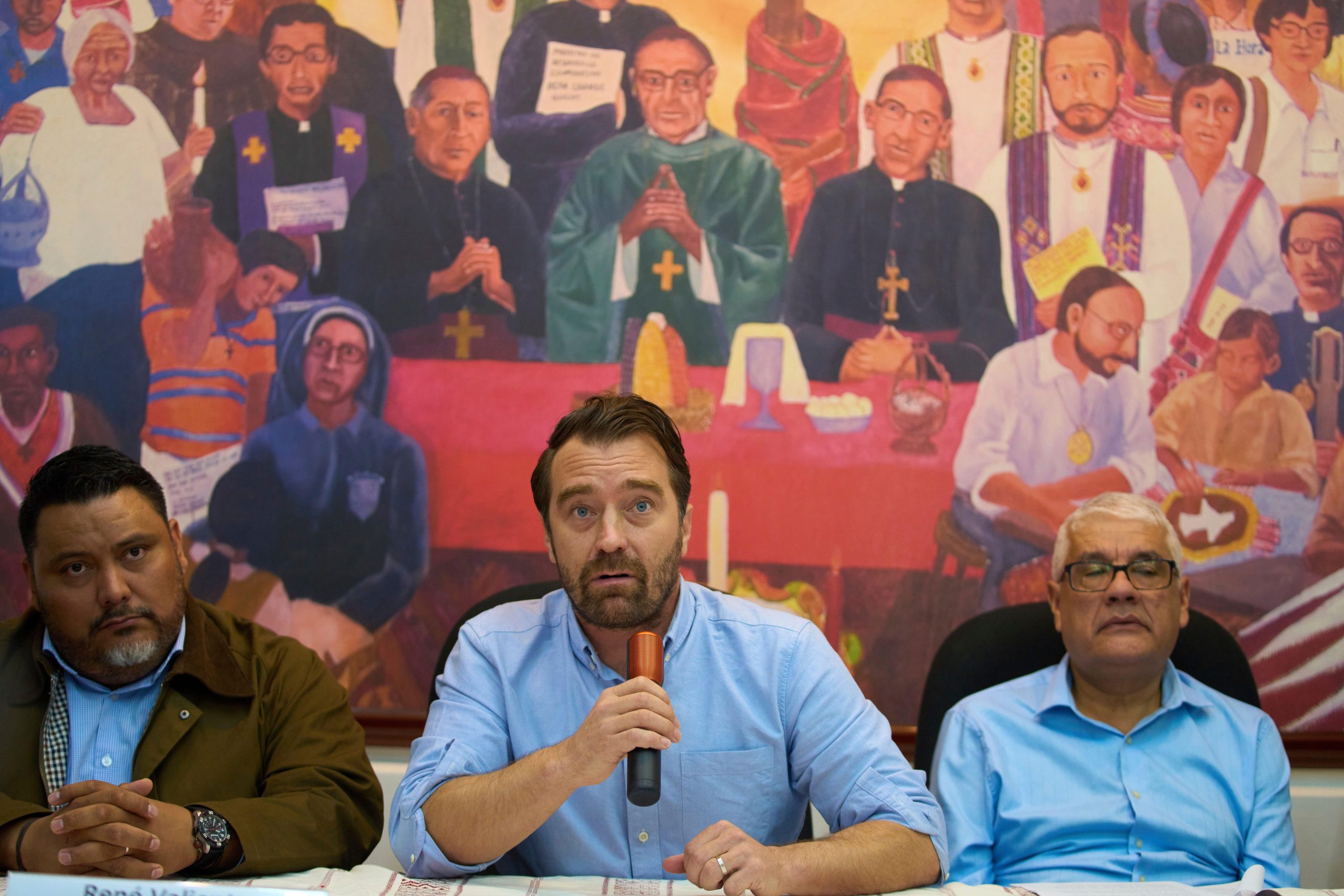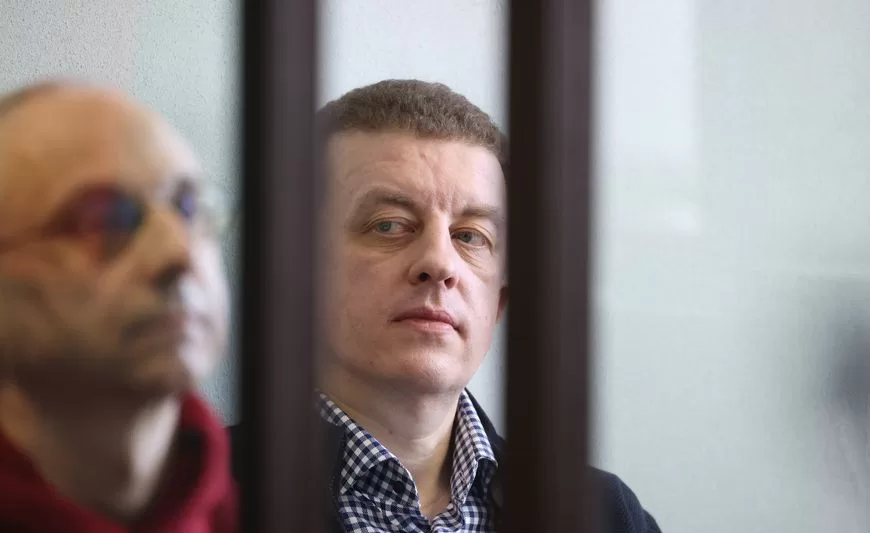In the age of online information, it can feel harder than ever to stay informed. As we get bombarded with news from all angles, important stories can easily pass us by. To help you cut through the noise, every Friday Index publishes a weekly news roundup of some of the key stories covering censorship and free expression. This week, we look at how a human rights group has been forced out of their country, and how the White House faces backlash for banning a popular news outlet.
Human rights on the run: Activists critical of Nayib Bukele forced to flee El Salvador
After 25 years of activism, Cristosal, the most prominent human rights group in El Salvador, has made the decision to relocate its staff and operations out of the country following increasing threats and targeting by the Salvadoran government.
Cristosal had been at odds with President Nayib Bukele’s government for years. The group was at the forefront of critics within the country over the wrongful deportations of Venezuelans to El Salvador from the US and has compiled alleged evidence of torture and corruption within Bukele’s government. But tensions have escalated as El Salvador has forged a strong alliance with the USA under Donald Trump. Executive director of Cristosal Noah Bullock stated that repression against journalists and activists has escalated in the last two months, and that the arrest of Ruth López, Cristosal’s chief legal officer in anti-corruption was the tipping point that pushed them to flee.
López, held in the Izalco prison in the west of El Salvador, is now the only Cristosal employee remaining in the country where it was founded; the group ensured that all staff were safely out of the country before making the announcement out of fear of Bukele’s response. It follows an increasing trend of journalists and activists fleeing the Central American country – at least 40 journalists have relocated since May, alongside over 60 lawyers and activists, due to police harassment, surveillance, and threats of arrest. Cristosal will continue to cover human rights abuses in El Salvador from exile in neighbouring countries Guatemala and Honduras.
Getting the boot: White House bars Wall Street Journal from Trump’s Scotland trip
The White House has come under fire for barring The Wall Street Journal (WSJ) from joining the media entourage covering Donald Trump’s trip to Scotland following a controversial report regarding Trump and child sex offender Jeffrey Epstein.
The article contained a description of a letter Trump allegedly wrote to Epstein for the disgraced financier’s 50th birthday, including a drawing of a naked woman and allegedly including the quote “Happy Birthday — and may every day be another wonderful secret.” Trump denied ever writing the letter, and reportedly threatened to sue WSJ if they released the article. US press secretary Karoline Leavitt stated WSJ were kicked from the press pool due to “fake and defamatory conduct”.
A spokesperson for rival newspaper New York Times has condemned the decision, dubbing it “an attack on core constitutional principles underpinning free speech and a free press“, while the White House Correspondents Association’s president Weijia Jiang stated that it should “concern all who value free speech and an independent media”. It is merely the latest incident of the Trump administration cracking down on media organisations; in February the White House revoked the Associated Press’s access to presidential events after it refused to refer to the Gulf of Mexico as “Gulf of America” as Trump had decreed.
A tipping point: BBC joins media orgs in statement on Gaza starvation
The BBC have released a joint statement with Agence France-Presse (AFP), Associated Press (AP) and Reuters expressing concern over the rapidly increasing threat of starvation to their journalists reporting from Gaza.
International journalists are currently barred by Israel from entering the Gaza Strip, meaning that the only reporters on the ground are local Palestinian journalists, who are as affected by the ongoing conflict as civilians. The statement reads, “For many months, these independent journalists have been the world’s eyes and ears on the ground in Gaza. They are now facing the same dire circumstances as those they are covering.”
It follows an AFP statement calling for Israel to allow its freelance journalists to leave Gaza, reporting that they had been forced to cut back on their coverage of the conflict due to starvation; one journalist said, “we have no energy left due to hunger”. This aligns with widespread reports that the famine in Gaza is reaching unprecedented levels due to Israeli forces blocking aid into the country. The chief of the World Health Organization stated that Gaza is suffering “man-made mass starvation”, and over 100 humanitarian groups released a joint statement detailing the “intense famine” faced across Gaza. Israeli government spokesman David Mencer refuted this, telling Sky News that “There is no famine in Gaza”, and that all food shortages had been “engineered by Hamas”.
A step in the right direction: Malawi decriminalises defamation
In a landmark judgement regarded as a huge step towards press freedom for the south-east African nation, Malawi has ruled that criminal defamation is unconstitutional, stating that it was a “disproportionate and unjustifiable limitation on constitutional freedom”.
The judgement came as part of a case concerning Malawian social media influencer Joshua Chisa Mbele, who challenged Section 200 of the Penal Code – the section criminalising defamation – after charges were brought against him for comments he had made regarding a public official. The Malawi chapter of Media Institute of Southern Africa (MISA) described the case as “a landmark victory for freedom of expression”.
The law had allowed those found guilty of defamation to face criminal sanctions, such as steep fines and imprisonment. The court ruled arbitrary interpretations of the law and the fear of reprisal harming public discourse meant that the law violated constitutional rights regarding free speech. However, true press freedom in Malawi remains distant: publishing “false news” can be met with up to two years in jail, while the “unauthorised transmitting of data” can be met with up to five years’ imprisonment.
A swift U-turn: Terror charges against Kenyan activist dropped after backlash
Notable Kenyan activist Boniface Mwangi was arrested on 19 July 2025, accused of “facilitation of terrorist acts” during the widespread protests that have shaken Kenya over the last two months. His arrest sparked outrage across the country and worldwide, with rights groups denouncing the charges raised against him and #FreeBonifaceMwangi going viral on social media. Now, the terror charges have been dropped, in place of the lesser charge of the illegal possession of ammunition without a licence.
Investigators reportedly searched his home and office, seizing personal devices such as a laptop, notebooks and two unused teargas canisters. The search warrant used by the police also allegedly accused Mwangi of paying “goons” to incite the protests, a claim that Mwangi denies. He stated outside court 21 July that he has never worked with “goons” and that “people hate [Kenyan President William] Ruto for free.”
Mwangi is often involved in protests, and has been detained a number of times. In May, he and Ugandan activist Agather Atuhaire were detained and allegedly tortured following a protest in Tanzania before being dumped at the borders of their respective countries. Recent protests in Kenya have been met with intense repression, with Ruto ordering officials to shoot demonstrators in the leg to ensure they are incapacitated but not killed – nevertheless, 65 people are reported to have died in protests since unrest began on 12 June.






